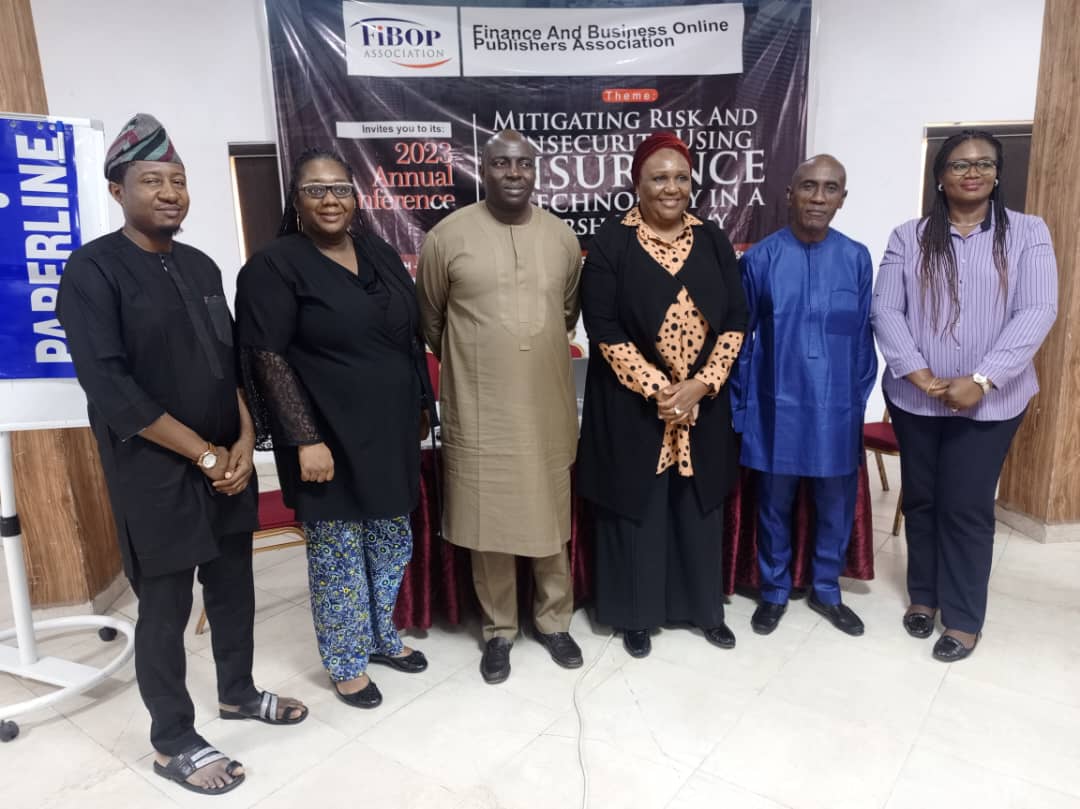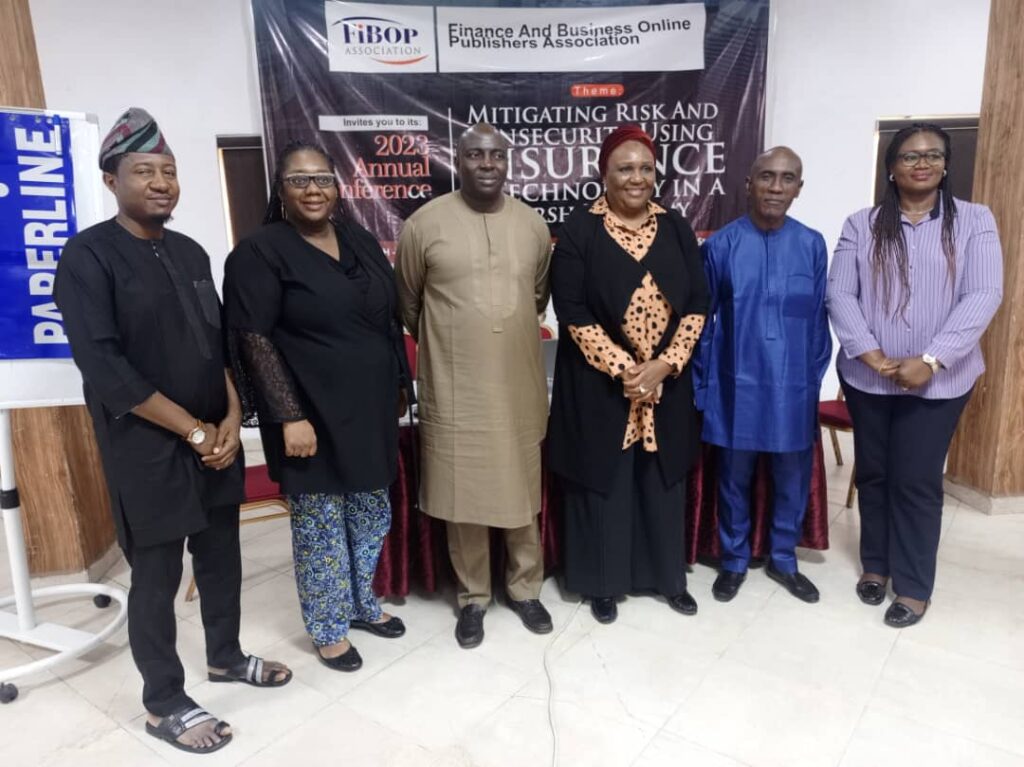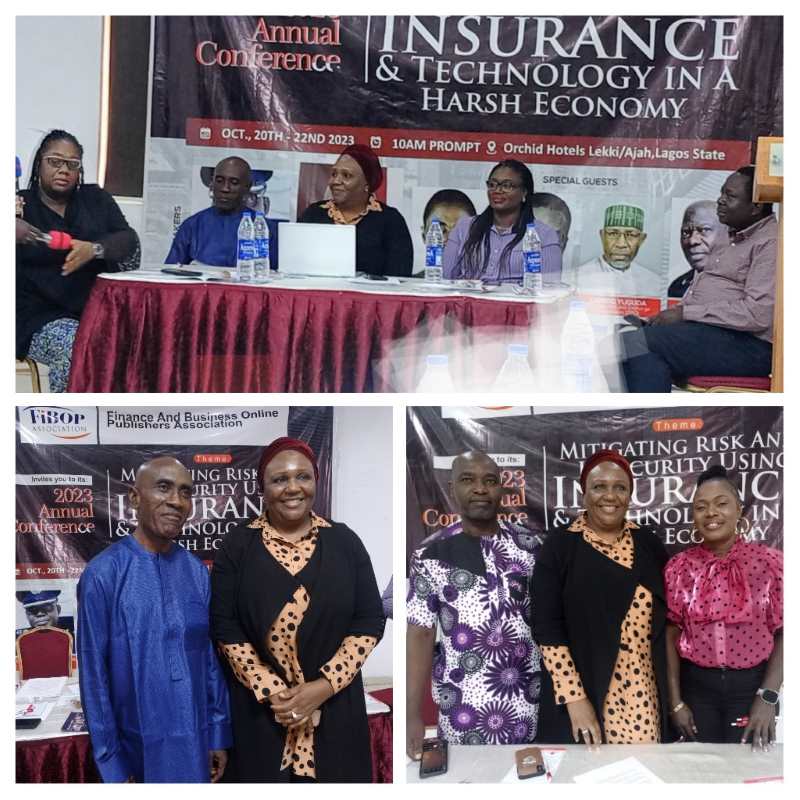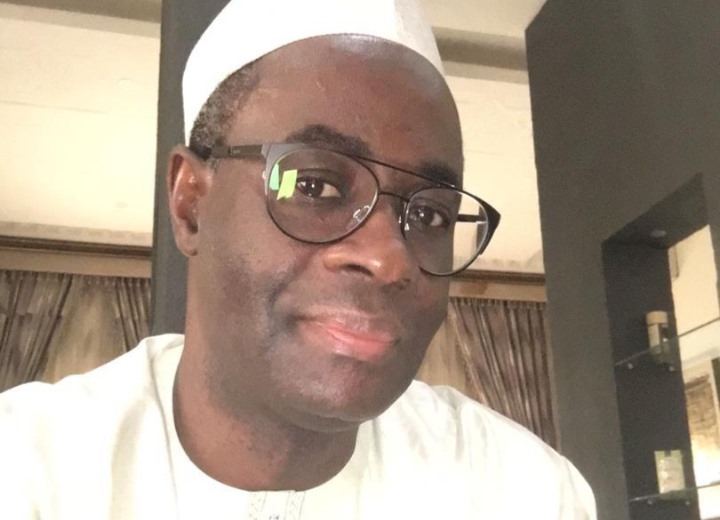
By Okosun Dennis

Digital financial payment systems have been described as making a huge positive impact on the Nigerian economy hence there is a need to implement strategies to mitigate risk.
In a keynote address at the 2023 Conference organised by the Finance and Business Online Publishers (FiBOP), held over the weekend at Orchid Hotels in Lekki-Ajah, Lagos, the representative of Mr. Bello Hassan, Managing Director of Nigeria Deposit Insurance Corporation (NDIC), Ms. Hawwau Gambo, the Assistant Director, Media Relations, NDIC, said digital financial payments have revolutionised easy payments for good and services.
The theme of the conference theme was: Mitigating Risk and Insecurity using Insurance and Technology in a harsh economy.”
Decrying the arbitrariness and abuse of Loan Apps, she disclosed that some are not only illegal but dubious individuals used to commit fraud of exponential proportion while at the same time, some use them to tarnish the image of some borrowers by sending frivolous messages and profile of debtors to their phone contacts, who are ignorant of the existence of such loans.
She claimed, “Some of those Apps are not registered, some are illegal hence they don’t want to follow the conventional way. As soon as they cook you in, they automatically send those messages to your contacts should you fail to pay back. This is not only happening in Nigeria but happens abroad too. However, you should be mindful of the borrowing Apps you accept such loan offers from.”
On the effects of war and insecurity on businesses and losses suffered therein by individuals and corporate organizations, Mrs. Gambo noted that it has caused a lot of closure of some financial institutions.
“We encourage banks to leverage on agent banking. It goes beyond the purview of financial institutions but is a global issue. However, we are leveraging on technology to mitigate unforeseen circumstances, especially operating in an insured environment.”
Also speaking, the Group Managing Director of CRC Credit Bureau, Dr. Ahmed Tunde Popoola emphasized that credit defaulters, whether of failed or acquired banks, will find it difficult to access new credits unless they cleared their names with their former creditors to obtain positive reports from rating agencies.

Represented by the Head, Strategic Marketing and Communications of CRC Credit Bureau, Mrs Peggy Chukwuma-Nwosu noted that the bureau in synergy with the Central Bank of Nigeria (CBN) and Nigeria Deposit Insurance Corporation (NDIC) have laid ambush for all defaulters found in this category as they seek to access new credits.
She explained that the report on such individuals or organisation will be negative as long as they fail to meet their obligations to their creditors.
According to her, the bureau will write a negative report about them whenever their new creditors inquire about their credit behaviour or standing, insisting that the only remedy is for the defaulters to go and reconcile with their former creditors by clearing their old bills before they will be given a clean bill of health.
Explaining more on risk and its potential dangers to business and the financial sector of the economy, Mrs. Peggy reemphasized that risk is a possibility that something will go bad, and investors, business owners, and financial institutions must put structures in place to mitigate it stressing that every single sector of Nigerian economy is exposed to risk.
On taking responsibility for service loans, Mrs. Peggy warned that “it is not bad to take a loan; and it’s also not bad to owe but bad to have a default.”
While commending FiBOP for the conference, the Head, Corporate Communication, Security and Exchange Commission (SEC), Mrs Joy Utubor thanked the organizers for their initiatives and ingenuity adding that conferences of this nature help in obliterating many fake online news.
In his vote of thanks, the President of the Association, Mr. Charles Onwuatogwu applauded all the invited Guest speakers for their incisive lectures and contributions which has had far-reaching positive impact on mitigating risk and insecurity using insurance and technology as an essential tool in a harsh economy.




